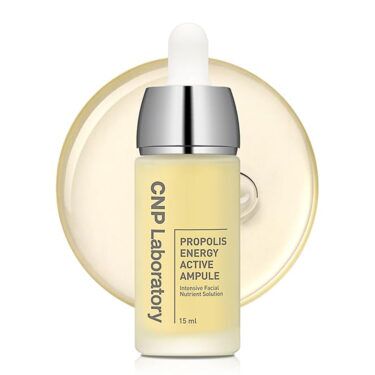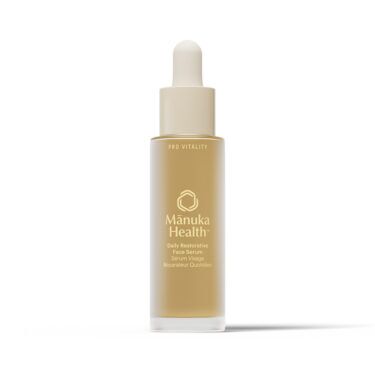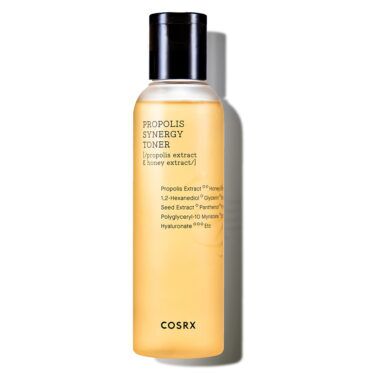We could earn fee from hyperlinks on this web page. Every product featured has been vetted and chosen by our editors.
Keep in mind when Ok-beauty merchandise hit the U.S. market again some 10-plus years in the past? Issues like BB lotions and cushion compacts have been new to us, however to not the hundreds of thousands of Korean skin-care obsessives and their 12-step routines. Since then, the traits popping out of Seoul and different Asian markets haven’t been restricted to revolutionary textures and codecs. New substances have additionally landed stateside, and one you’ll be seeing extra of is propolis. Although newer in skincare within the U.S., it’s no stranger within the wellness area, the place it’s utilized in immune-boosting dietary supplements. “Propolis has long been a beloved ingredient in Korean skin care, but in other markets, it’s more commonly known as an edible substance that boosts the immune system,” says Michelle Kim, digital advertising supervisor at Ok-beauty model CNP Laboratory.
Because of the superior processing methods utilized by Ok-beauty firms, Kim says propolis is now a robust skin-care ingredient. “We believe it has the potential to become even more popular in the coming years,” she provides. Right here, specialists share their perception on all issues propolis, and the perfect merchandise to seek out it in.
What’s propolis?
To not be confused with honey, propolis is an amber-colored, resin-like substance created by bees from tree sap and plant supplies. “Bees use it to seal and protect their hives from bacteria and viruses,” says the group at COSRX, a Ok-beauty model. It’s recognized for its antibacterial, anti-inflammatory and antioxidant properties, and it’s produced in many various nations. “It is also known as the bee glue,” provides beauty chemist Ginger King. “While you get honey from the nectar, you get propolis from tree saps and resins.”
In accordance with New Zealand model Mānuka Well being, which makes use of propolis in its skin-care and wellness merchandise, propolis has been revered for its extraordinary properties all through historical past. “Ancient Greeks harnessed the healing potential of propolis to treat a range of ailments, including sores and coughs, showcasing its diverse medicinal applications. The enduring appreciation of propolis across ancient civilizations highlights its longstanding reputation as a potent natural remedy.”
What advantages does it present in skincare?
In skincare, propolis is an unimaginable multitasking ingredient with a protracted record of advantages. “In Korean beauty, people love it because it’s lightweight and can be layered, which is suitable for multistep beauty regimens,” says King. “Thus, you often see it in ampoules, essences and masks.”
COSRX says propolis is valued for its pure therapeutic and protecting qualities. “It’s a highly sought-after ingredient to soothe and nourish the skin,” provides Kim. “It is also highly effective for strengthening and repairing the skin. Incorporating it into skin-care routines aligns with the growing wellness trend. It offers a natural and gentle way to maintain skin health, especially by helping the skin build resilience against environmental stress.”
Propolis can be utilized in merchandise for delicate and acne-prone pores and skin varieties as a result of it’s antibacterial and anti inflammatory. “It helps reduce inflammation, and its natural antibacterial properties help prevent breakouts and support a clear complexion,” Kim explains. As an antioxidant, propolis fights in opposition to damaging free radicals. “This reduces the effects of aging and improves skin resilience,” she provides. “Propolis is also a natural humectant, so it helps the skin retain moisture and stay hydrated. And, it supports the skin’s natural repair processes. It helps to soothe irritation, redness and minor wounds.”
How is propolis sourced?
Propolis is a bee byproduct, so one downside is that it’s not vegan. Nonetheless, COSRX, CNP Laboratory and lots of different manufacturers using the ingredient make sure that to supply it responsibly. (The identical goes for honey and its use in skincare.) COSRX says its propolis is sourced with cautious consideration to bee welfare. “We work with suppliers who ensure that bees are treated responsibly and unharmed during the extraction process. We support sustainability and ethical practices.” Kim says CNP collects the ingredient from bee hives by beekeepers throughout common hive upkeep in a means that doesn’t hurt the bees. “Ethical beekeepers ensure that the bees are provided with safe, healthy environments. This allows them to thrive while only the propolis that is needed is collected.”
Kim shares a narrative with me about her go to to one in every of CNP’s bee-farming companions on Jeju Island. “It was inspiring to see the bees working so hard, with the farm owners showing great respect for them,” she tells me. “The bees were very gentle, proving how they coexisted with the beekeepers. The beekeepers shared that bees and their keepers have a mutual relationship, both working diligently. If the hives aren’t regularly maintained, the bees either stop working or relocate. By periodically cleaning the hives and leaving a proper amount of honey and propolis, the beekeepers ensure that the bees have space to continue their work. Propolis is a rare material, collected only once a year in small quantities. Once harvested, it is sent to the CNP lab, where it undergoes a meticulous purification process for use in our skin-care products.”
Does this ingredient work for all pores and skin varieties?
Propolis typically works properly for many pores and skin varieties. “This includes sensitive and acne-prone skin, due to propolis’s calming and antimicrobial properties,” says Kim. “However, people who are allergic to bee products, such as honey or bee venom, should avoid propolis, as it may cause allergic reactions.” Moreover, it’s greatest follow in case you’re new to propolis (or any skin-care ingredient) to patch-test merchandise first earlier than making use of.
Propolis Merchandise to Strive
1 / 3
The model tells me its standout product with propolis is that this toner, which mixes 72.6-percent black bee propolis extract and 10-percent honey extract to ship deep hydration, radiance and a wholesome glow. It’s particularly in style for dry and delicate pores and skin, however all pores and skin varieties can profit.
2 / 3
“For this product, we use a special Dual Propolis formula, which combines Jeju-sourced propolis extract and Brazil-sourced propolis extract,” says Kim. “Jeju propolis is known for its superior skin-soothing and repair benefits, as well as its higher flavonoid and antioxidant content compared to other propolis types.
On the other hand, Brazilian propolis is valued for its rich composition of bioactive compounds, thanks to Brazil’s diverse flora. It’s particularly recognized for its strong antioxidant, anti-inflammatory and antimicrobial properties, making it a sought-after ingredient in skin care and health products. It’s also SIF-certified for sustainability and ethical sourcing.”

3 / 3
This luxury serum combines manuka honey, propolis and vitamin C (ascorbyl glucoside) for an actual deal with on your pores and skin. It’s tremendous nourishing because it helps strengthen the pores and skin’s pure barrier. Over time, indicators of harassed pores and skin, like dryness, blotchiness, uneven pores and skin tone and texture, and breakouts, fade away and pores and skin seems visibly more healthy.




